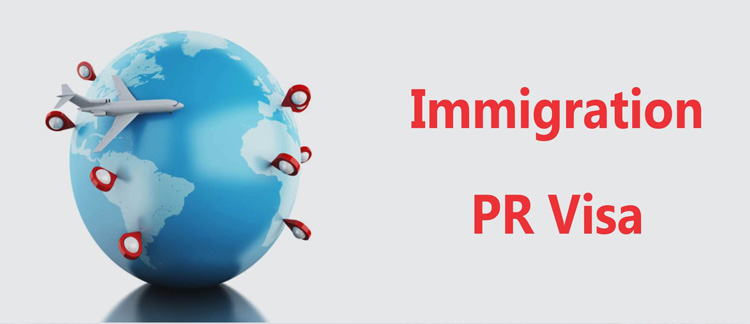.jfif)
It is usually tied to a specific job, employer, or type of work, and often requires the individual to meet certain qualifications or obtain sponsorship from an employer in the host country.
Key Features of a Work Permit
Purpose:
- Grants permission to engage in employment-related activities in a foreign country.
Employer-Specific:
- Often linked to a specific employer or industry, meaning switching jobs may require reapplication.
Duration:
- Typically valid for the length of the job contract, with possible extensions.
Eligibility:
- May depend on the applicant's qualifications, skills, and whether the job fills a labor shortage in the host country.
General Requirements for a Work Permit
While requirements vary by country, common criteria include:
Job Offer:
- A valid job offer or employment contract from an employer in the host country.
Employer Sponsorship:
- Employers may need to sponsor the application and prove that no qualified locals are available for the position.
Work Visa:
- A work permit is often issued in conjunction with a work visa, allowing entry into the host country.
Qualifications and Experience:
- Proof of relevant education, certifications, or experience for the job.
Health and Character Checks:
- Medical exams and background checks to ensure eligibility.
Language Proficiency:
- Proof of language skills, especially if required for the job or integration.
Application Process for a Work Permit
Secure a Job Offer:
- Before applying, you must typically have an offer from an employer in the host country.
Employer Files Application:
- In many cases, the employer applies for the work permit on behalf of the employee.
Submit Required Documents:
- Employment contract, passport, proof of qualifications, and other supporting documents.
Pay Fees:
- Application fees vary by country and permit type.
Processing Time:
- Approval can take weeks or months, depending on the country's labor regulations and workload.
Receive the Permit:
- Upon approval, you may receive the work permit directly or through your employer.
Popular Work Permit Systems by Country
| Country | Permit Type | Special Notes |
|---|
| United States | H-1B Visa | For highly skilled workers, especially in tech and specialty fields. |
| United Kingdom | Skilled Worker Visa | Requires sponsorship from a UK employer and meeting salary thresholds. |
| Canada | Temporary Foreign Worker Program | Covers skilled and unskilled roles, requires a Labour Market Impact Assessment (LMIA). |
| Germany | EU Blue Card | For high-skilled professionals with competitive salaries. |
| Australia | Temporary Skill Shortage (TSS) Visa | Employer-sponsored visa for jobs on Australia's skill shortage list. |
| UAE | Work Permit via Ministry of Labour | Employer must arrange; linked to residency visa. |
Types of Work Permits
Skilled Work Permits:
- For individuals with qualifications in specific industries like IT, engineering, or healthcare.
Unskilled/Seasonal Work Permits:
- For temporary or seasonal jobs, such as agriculture or hospitality.
Open Work Permits:
- Allows the holder to work for any employer in the host country (e.g., Canada's Open Work Permit for spouses).
Intra-Company Transfers:
- For employees of multinational companies transferring to a branch in another country.
Post-Graduation Work Permits:
- Issued to students after completing their studies to gain work experience.
Benefits of a Work Permit
- Provides legal authorization to work and earn income.
- Opens doors for career advancement and networking in international markets.
- May lead to permanent residency in some countries.
Challenges of Obtaining a Work Permit
Employer Sponsorship:
- Not all employers are willing or able to sponsor foreign workers.
Quota Limits:
- Some countries cap the number of permits issued annually (e.g., the U.S. H-1B visa).
Strict Criteria:
- Must demonstrate qualifications and experience to meet local labor market needs.
Processing Delays:
- Applications can be time-consuming due to thorough evaluations.
Work Permit Renewal or Extensions
- Work permits typically need to be renewed before they expire.
- Renewal often requires the same documentation as the initial application and proof that the job still exists.
Tips for Success
- Tailor Your Resume:
- Highlight relevant skills and qualifications for the host country.
- Research Employer Requirements:
- Ensure your potential employer understands the sponsorship process.
- Meet Deadlines:
- Submit applications early to avoid delays.
- Stay Informed:
- Follow up with immigration authorities or employers to monitor application progress.



 info@miamiintbd.com +8801964365648
info@miamiintbd.com +8801964365648
